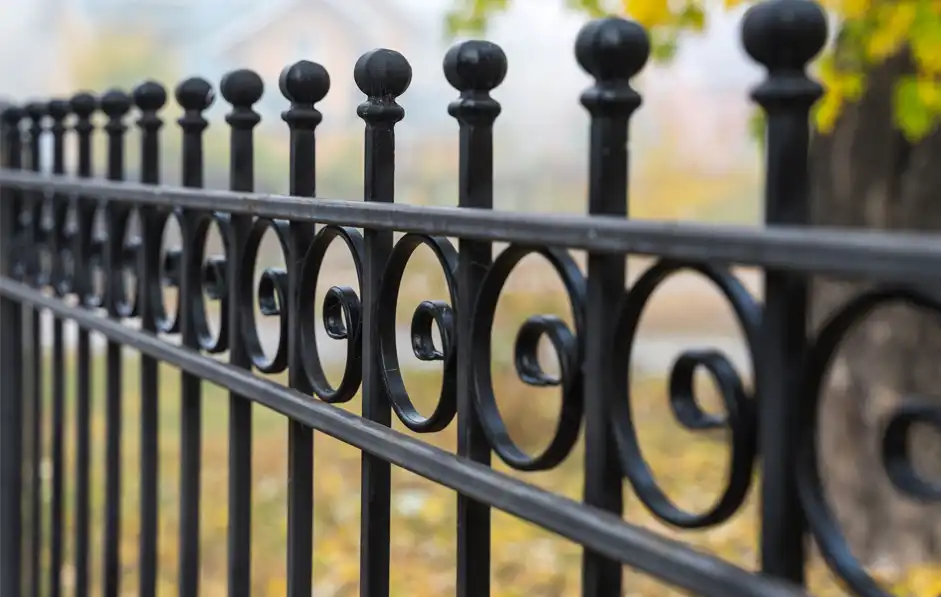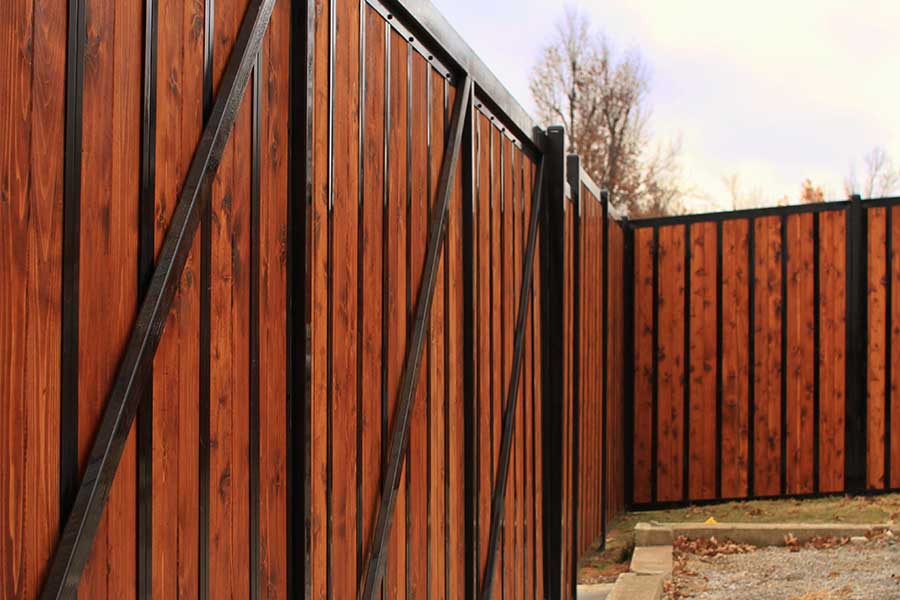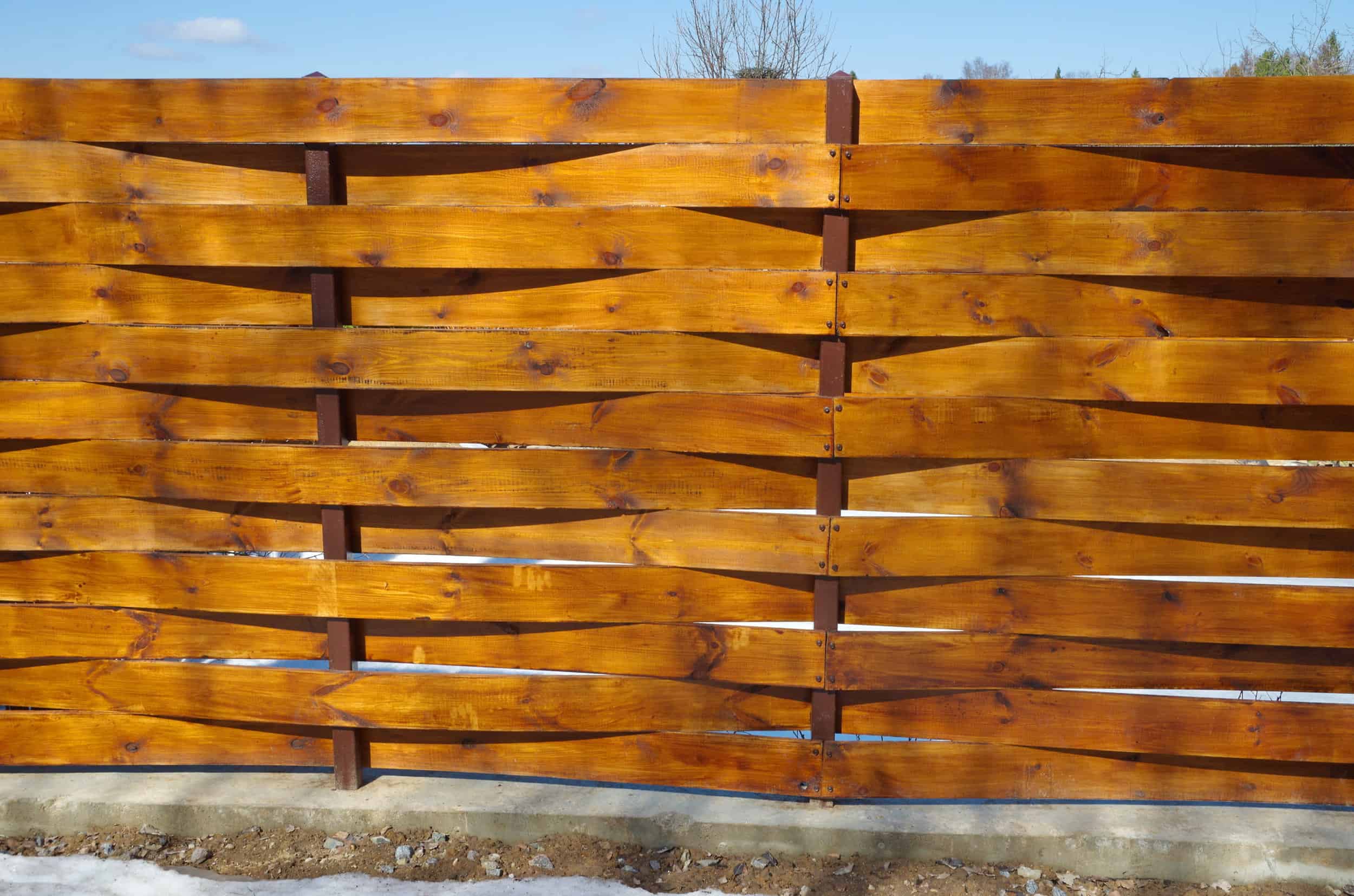All Categories
Featured
Choosing the appropriate sort of fence for your residential or commercial property is a choice that calls for thoughtful factor to consider of a number of elements, from the product and design to its objective and maintenance requirements. A fence not just offers practical functions such as protection and personal privacy however can additionally boost the aesthetic allure of your home. With a range of products available, it's necessary to comprehend what works best for your particular needs.
![]()
Privacy: If your objective is to block out the view from neighbors or passersby, you'll want a solid fence without any spaces. Materials like wood, compound, and plastic are prominent options for privacy fences. They supply the required insurance coverage to guarantee a secluded lawn or garden room. Safety: For maintaining burglars out or protecting children and pets, you'll need a solid, tall fencing. Metal fencings such as light weight aluminum, chain, or steel web link offer terrific resilience and are tough to climb up. These products are additionally ideal for developing a secure perimeter around your residential property. Visual Charm: If the objective of your fencing is extra attractive than practical, you might opt for a picket fencing, functioned iron, or a split rail fence. These options supply an eye-catching border without providing complete personal privacy. 2. Consider Your Budget. Your budget will play an important function in your choice. Various materials come with differing rate factors, so it is essential to take into consideration just how much you're eager to spend. Here are some basic guidelines:
Wood Fencing: Among one of the most cost-effective alternatives, wood fencings can be customized and set up easily, though they call for maintenance to avoid rot and bending. Routine staining or paint is required to maintain its look and toughness. Plastic Secure fencing: While vinyl is more expensive in advance than wood, it's a low-maintenance option. Vinyl fences don't need painting, discoloration, or sealing, and they are resistant to decay, fading, and bugs. Nevertheless, they can be susceptible to splitting in severe cool temperature levels. Chain Web Link Secure Fencing: If your major priority is keeping costs low, wire mesh fence are the most economical option. While they don't supply a lot in terms of personal privacy, they're practical for securing family pets and noting property limits. Steel Secure Fencing (Light Weight Aluminum or Steel): Metal fences are sturdy, resilient, and essentially maintenance-free. While they can be pricier than timber or chain link, they offer included safety and a streamlined, modern look. 3. Toughness and Upkeep Needs. Think of the long-lasting resilience of your fence and just how much effort and time you agree to spend in maintenance:
![]()
Timber: While timber offers a natural appearance, it requires regular maintenance, including sealing and tarnishing, to shield it from the aspects. Wood fences can last 10-15 years with proper upkeep. Plastic: Vinyl fencings are low-maintenance and are very durable. They will not rot, warp, or discolor gradually. When installed, you can anticipate a plastic fence to last for numerous decades with minimal treatment. Metal: Aluminum and steel fencings are highly durable and need little to no maintenance. Aluminum won't rust, and steel can be treated with a protective coating to stop rust. Both options can stand up to extreme climate condition and are ideal for long-term usage. Chain Link: Although wire mesh fence are long-lasting and tough, they may need routine repairs, particularly if the galvanized finish starts to put on off. They can rust gradually, though modern finishes like vinyl are available to expand the life-span. 4. Consider Aesthetic Appeal. The style and design of the fence ought to match the design of your residential property. Think about the general aesthetic you want to attain:
Traditional Homes: For more classic, conventional buildings, a wood or functioned iron fence could be the very best fit. These products offer an ageless charm and can be customized to match the design of your home. Modern or Contemporary Homes: If you have a modern home, you might intend to select sleek, minimalistic products like light weight aluminum or vinyl. These fences provide a clean appearance and can be tailored with various shades or coatings. Farm or Rural Settings: For larger residential or commercial properties or rural settings, split-rail or ranch-style fences can give a genuine look and are suitable for specifying building borders while still enabling for an open sight. 5. Climate Factors to consider. The environment in your area plays a vital role in figuring out the ideal product for your fence. Wood may warp or rot unless dealt with correctly if you live in an area with high humidity or heavy rains. Plastic and metal choices, nevertheless, perform well in the majority of climates and are less vulnerable to damages created by moisture.
![]()
Final thought. Choosing the ideal fence for your home relies on recognizing your needs, budget plan, and individual choices. Whether you're focusing on personal privacy, safety and security, looks, or reduced upkeep, there is a wide variety of options offered. By taking into consideration the product, longevity, and style of your fencing, you can make certain that it boosts the feature and appearance of your home for many years to find.

- Assess the Function of the Fencing. The very first step in choosing the suitable fencing is recognizing its main feature. The type of fencing you pick will certainly depend upon what you desire to achieve:
Privacy: If your objective is to block out the view from neighbors or passersby, you'll want a solid fence without any spaces. Materials like wood, compound, and plastic are prominent options for privacy fences. They supply the required insurance coverage to guarantee a secluded lawn or garden room. Safety: For maintaining burglars out or protecting children and pets, you'll need a solid, tall fencing. Metal fencings such as light weight aluminum, chain, or steel web link offer terrific resilience and are tough to climb up. These products are additionally ideal for developing a secure perimeter around your residential property. Visual Charm: If the objective of your fencing is extra attractive than practical, you might opt for a picket fencing, functioned iron, or a split rail fence. These options supply an eye-catching border without providing complete personal privacy. 2. Consider Your Budget. Your budget will play an important function in your choice. Various materials come with differing rate factors, so it is essential to take into consideration just how much you're eager to spend. Here are some basic guidelines:
Wood Fencing: Among one of the most cost-effective alternatives, wood fencings can be customized and set up easily, though they call for maintenance to avoid rot and bending. Routine staining or paint is required to maintain its look and toughness. Plastic Secure fencing: While vinyl is more expensive in advance than wood, it's a low-maintenance option. Vinyl fences don't need painting, discoloration, or sealing, and they are resistant to decay, fading, and bugs. Nevertheless, they can be susceptible to splitting in severe cool temperature levels. Chain Web Link Secure Fencing: If your major priority is keeping costs low, wire mesh fence are the most economical option. While they don't supply a lot in terms of personal privacy, they're practical for securing family pets and noting property limits. Steel Secure Fencing (Light Weight Aluminum or Steel): Metal fences are sturdy, resilient, and essentially maintenance-free. While they can be pricier than timber or chain link, they offer included safety and a streamlined, modern look. 3. Toughness and Upkeep Needs. Think of the long-lasting resilience of your fence and just how much effort and time you agree to spend in maintenance:

Timber: While timber offers a natural appearance, it requires regular maintenance, including sealing and tarnishing, to shield it from the aspects. Wood fences can last 10-15 years with proper upkeep. Plastic: Vinyl fencings are low-maintenance and are very durable. They will not rot, warp, or discolor gradually. When installed, you can anticipate a plastic fence to last for numerous decades with minimal treatment. Metal: Aluminum and steel fencings are highly durable and need little to no maintenance. Aluminum won't rust, and steel can be treated with a protective coating to stop rust. Both options can stand up to extreme climate condition and are ideal for long-term usage. Chain Link: Although wire mesh fence are long-lasting and tough, they may need routine repairs, particularly if the galvanized finish starts to put on off. They can rust gradually, though modern finishes like vinyl are available to expand the life-span. 4. Consider Aesthetic Appeal. The style and design of the fence ought to match the design of your residential property. Think about the general aesthetic you want to attain:
Traditional Homes: For more classic, conventional buildings, a wood or functioned iron fence could be the very best fit. These products offer an ageless charm and can be customized to match the design of your home. Modern or Contemporary Homes: If you have a modern home, you might intend to select sleek, minimalistic products like light weight aluminum or vinyl. These fences provide a clean appearance and can be tailored with various shades or coatings. Farm or Rural Settings: For larger residential or commercial properties or rural settings, split-rail or ranch-style fences can give a genuine look and are suitable for specifying building borders while still enabling for an open sight. 5. Climate Factors to consider. The environment in your area plays a vital role in figuring out the ideal product for your fence. Wood may warp or rot unless dealt with correctly if you live in an area with high humidity or heavy rains. Plastic and metal choices, nevertheless, perform well in the majority of climates and are less vulnerable to damages created by moisture.

- Neighborhood Laws and HOA Standards. Prior to completing your fencing selection, make certain to consult your neighborhood municipality or homeowners association (HOA) for any type of limitations pertaining to fence elevation, products, or style. Lots of locations have certain rules in location, and it is very important to abide to stay clear of possible fines or needing to take down the fencing.
Final thought. Choosing the ideal fence for your home relies on recognizing your needs, budget plan, and individual choices. Whether you're focusing on personal privacy, safety and security, looks, or reduced upkeep, there is a wide variety of options offered. By taking into consideration the product, longevity, and style of your fencing, you can make certain that it boosts the feature and appearance of your home for many years to find.
Latest Posts
Boost Your Home's Outside with Weathercraft's Home siding Solutions
Published en
1 min read
Discover WyHy Federal Credit Union – Trusted Financial Solutions for Your Financial Success
Published en
1 min read
Discover Affordable Auto Repairs with Montclare’s Exclusive Service Specials
Published en
1 min read
More
Latest Posts
Boost Your Home's Outside with Weathercraft's Home siding Solutions
Published May 26, 25
1 min read
Discover WyHy Federal Credit Union – Trusted Financial Solutions for Your Financial Success
Published May 24, 25
1 min read
Discover Affordable Auto Repairs with Montclare’s Exclusive Service Specials
Published May 23, 25
1 min read